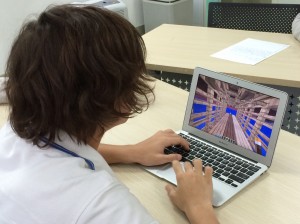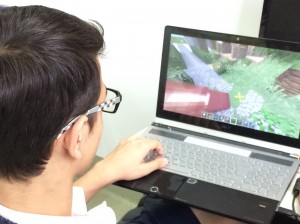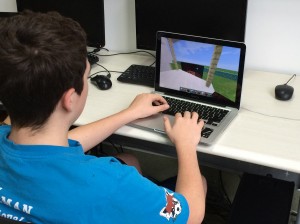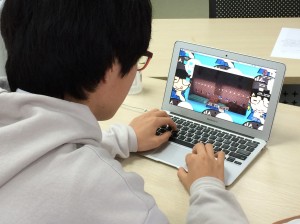As the students trickle back to school – for some, 7 weeks holiday is not enough – we now have a full complement in Grade 9, 10, 11 and 12. It’s our first year with a Grade 12 graduating class, so that in itself is exciting. We have some new students in grades 9 and 10, and have lost some students who have moved to pastures new so the classes all feel different.
This year there will be much more project-based learning going on and I’m excited by the changes that I am making to my syllabus and hope that the students respond well and become independent learners. It may be a slow start as they get used to this new way of working but I’m sure I will see a blossoming as students become more and more in charge of their own learning. I have reduced the number of units, built in a great deal of choice with regards to the texts used to explore the concepts, as well as choices in the ways in which the students demonstrate their understanding. I am mindful I also need to continue to develop their essential skills too but if this occurs in an authentic way, those skills will be more meaningful and relevant and make the acquiring and developing of them that much more successful.
Grade 9 – Culture
Grade 9 are starting off the year with a unit entitled “Culture”. To explore the concept of culture, the students will choose one of the four novels on offer, four short stories from a choice of several, and six poems from three different collections, complementing those literary texts with some non-fiction texts which they find for themselves. This unit centres around the production and reception of texts and explores how language is used to express and understand culture. We started with a general discussion: what is culture? The students viewed the cultural iceberg image and we discussed that much about a cultural identity is hidden and for many of us, it’s not clear cut. The students are exploring their sense of culture by producing a personal cultural map, visually showing how they see their own cultural background.
We are going to make our classes as connected as possible without being too bound by the classroom walls, so the students will continue to blog about their learning journey and I have introduced them to the world of Twitter. We agreed a hashtag which we will use for the year – #LisLAG9 to represent Léman International School language arts grade 9. It will be interesting to see how this develops as it’s a new way of communicating for many of the students. Their first Tweet should be “Culture is …” using appropriate hashtags. Some students have managed this:
#LISLAG9 #culture Culture is tradition or a belief for a family or a person which they experienced to built an “entire” personality.
Culture is the way you think, interest with others. Your beliefs, values, customs, attitudes, and behavior. Culture unites people.
It may not seem like such a big deal, but trying to get the students accounts on Twitter was not as easy as it should be. But we’re getting there. As I continually tell the students, the vagaries of the internet in China cannot be seen as an excuse but merely an opportunity for some creative solutions.
Grade 10 – Power & Leadership
Grade 10 will be working in a similar fashion this year. It’s even more important for the grade 10 students to become independent learners in order to prepare for their studies next year in the IB diploma programme. Returning students from last year will have some experience of this as we ended the year doing a project-based unit with the novel Frankenstein at its core. This year there will be more choice of texts, allowing for greater student input, engagement and personalisation.
The first conceptual unit is based around developing an understanding of power and leadership. A variety of texts, both fiction and non-fiction, print and visual, will be used to explore these concepts. The students have a choice of one novel from a possible four, two films from the many on offer, a biography of a leader they are interested in researching, and some self-selected and researched non-fiction texts, such as newspaper and magazine articles. As a starting point, the students will be seeing if they can come up with a “formula” for a good leader to investigate whether there is a set of common traits among good leaders. We will then discuss whether being a good leader means you have to do good things: Hitler, for example, could be considered to have been a good leader. They will then use these discussions as a way of exploring the characters in their novels and films, and the biographies through which they will investigate some real-life leaders. The unit will last eight weeks, during which there will be on-going formative assessment in a variety of forms, including Tweets and blog posts, to ensure the students are developing their understandings as well as their skills. Summative assessment will take different forms for different students. Over the course of the four units during the year, the students will have to balance out how they demonstrate their understanding. It’s important they continue to develop their analytical writing skills as well as creative and oral responses to texts but when they do which is up to them over the course of the year. One of the advantages for me is that this should mean that I will not have a whole class load of essays to assess all at the same time
At the beginning of the unit I envisage having to provide more structure for the students, particularly for those less used to working in this manner but experience tells me that students will relish the opportunity to be more in charge of how they learn as well as what they learn and will rise to the challenges and therefore reap the benefits of project-based learning.



